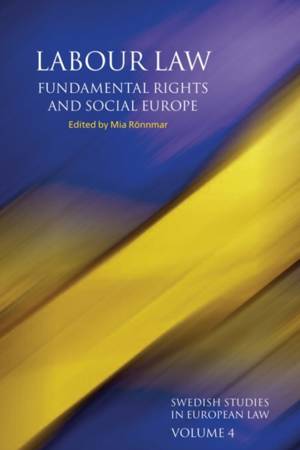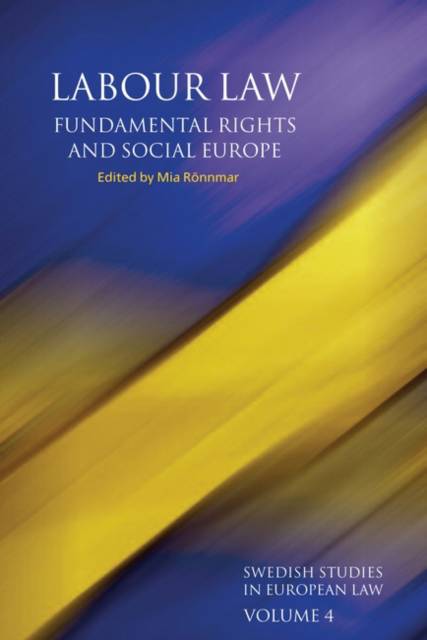
- Retrait gratuit dans votre magasin Club
- 7.000.000 titres dans notre catalogue
- Payer en toute sécurité
- Toujours un magasin près de chez vous
- Retrait gratuit dans votre magasin Club
- 7.000.0000 titres dans notre catalogue
- Payer en toute sécurité
- Toujours un magasin près de chez vous
Labour Law, Fundamental Rights and Social Europe
Swedish Studies in European Law - Volume 4, 2009
Mia Rönnmar
136,95 €
+ 273 points
Description
This volume, comprising three parts and ten chapters, all of them peer-reviewed essays, arises from the work of the Swedish Network for European Legal Studies. Its focus is on labour and social security law. The chapters, written by distinguished legal researchers associated with Swedish universities, provide insight into a range of topical and important developments, seeking new and interesting perspectives. Sweden has been a member of the European Union since 1995, and EU law and European law perspectives have been well integrated into Swedish labour law and social security law research. Within the European Social Model and the European Welfare State, Sweden (and to some degree the other Nordic countries as well) can be said to represent a specific system, as regards both labour law and industrial relations and social security law. In terms of influential comparative typologies or models (naturally 'flawed' by a certain element of vagueness and simplification, but also very helpful in analytical and pedagogical respects), Sweden has been described as a representative of, inter alia, a Nordic legal family, a Nordic labour law model, a social-collectivist industrial relations system, a consensual industrial relations system, a social-democratic welfare state regime, a Scandinavian social security law system (a 'sub-group' of the Beveridge system), and a coordinated market economy. But since 1995 EU law and European law perspectives have been extensively integrated into existing Swedish labour and social security law, and the chapters in this book go a long way in illustrating the far-reaching and multifaceted ways in which Swedish law has been 'Europeanised'.
Spécifications
Parties prenantes
- Auteur(s) :
- Editeur:
Contenu
- Nombre de pages :
- 304
- Langue:
- Anglais
- Collection :
- Tome:
- n° 4
Caractéristiques
- EAN:
- 9781849462105
- Date de parution :
- 06-09-11
- Format:
- Livre relié
- Format numérique:
- Ongenaaid / garenloos gebonden
- Dimensions :
- 165 mm x 234 mm
- Poids :
- 566 g

Les avis
Nous publions uniquement les avis qui respectent les conditions requises. Consultez nos conditions pour les avis.






